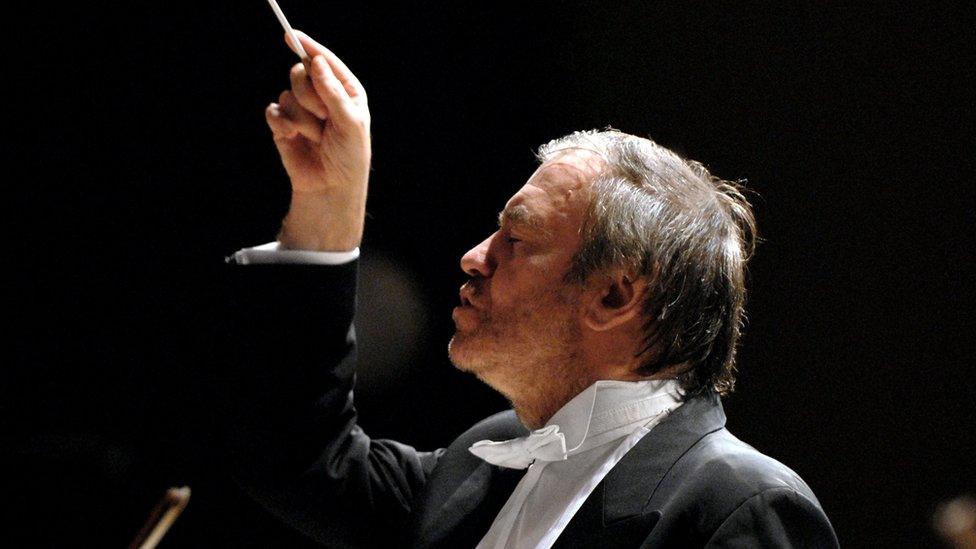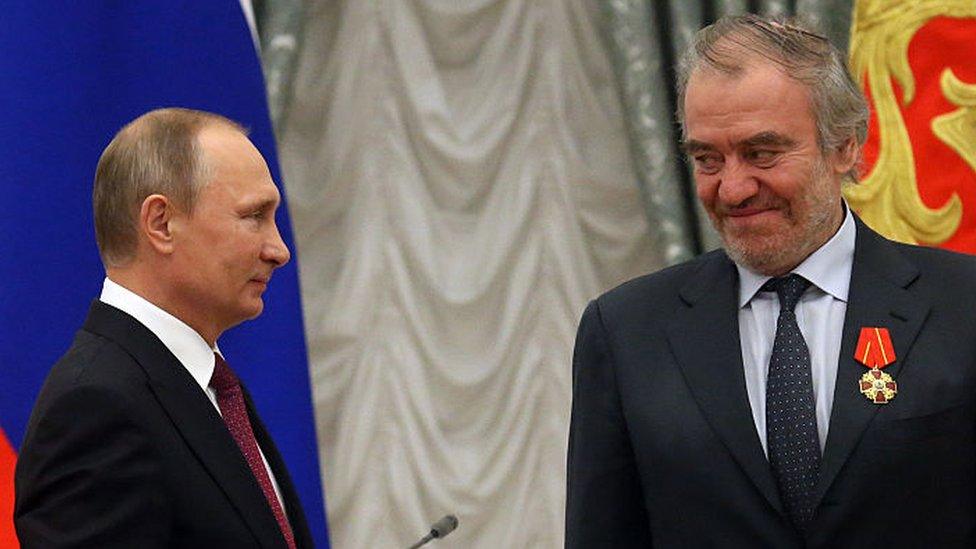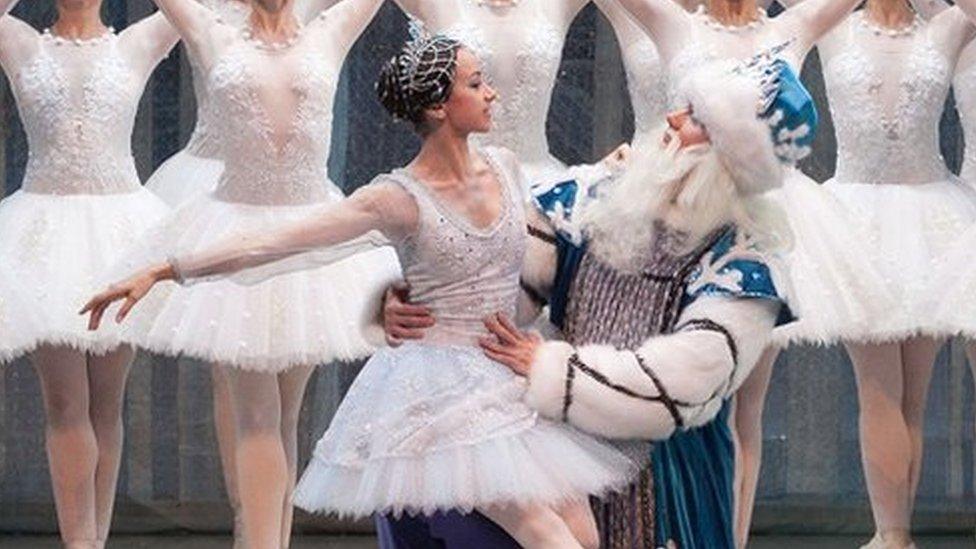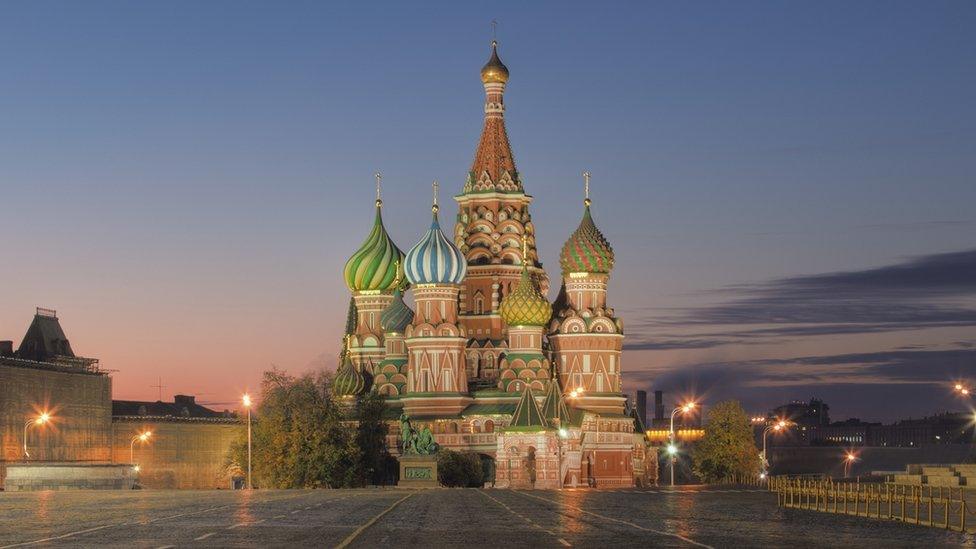Russian conductor Valery Gergiev dropped by Munich orchestra over ties to Putin
- Published

Valery Gergiev, a supporter of President Putin, has failed to condemn the invasion of Ukraine
The Munich Philharmonic has parted ways with its chief conductor Valery Gergiev over his ties to Vladimir Putin.
A close friend and supporter of Putin, the musician has faced increasing pressure to speak out against Russia's invasion of Ukraine over the last week.
Munich mayor Dieter Reiter issued an ultimatum, saying Gergiev would be dismissed if he failed to condemn Putin's actions by Monday.
After the deadline passed, Reiter terminated the musician's contract.
"With immediate effect, there will be no further concerts by the Munich Philharmonic Orchestra under his direction," said the mayor in a statement.
Gergiev's failure to denounce the invasion of Ukraine has left his career in tatters.
Over the weekend, the conductor was dropped by his management, dismissed from major festivals and had several upcoming concerts cancelled. On Monday, the Edinburgh International Festival - of which he was honorary president - asked for, and accepted, his resignation.
"Edinburgh is twinned with the city of Kyiv and this action is being taken in sympathy with, and support of, its citizens," said the board of trustees in a statement.

Mr Gergiev is a supporter of President Putin
Gergiev is currently conducting a run of performances of Tchaikovsky's The Queen of Spades at La Scala in Milan, where it was reported he was booed by audiences last week.
The opera house has also stated that he will be dropped from his upcoming appearance on 5 March if he does not speak out against the Russian regime.
"We have been asking him... to take a clear position against this invasion and, if he will not do it, we will be forced to end this collaboration," said Milan's mayor Giuseppe Sala, who is also the president of La Scala.
The Rotterdam Philharmonic has also announced that it will cancel its longstanding annual Gergiev Festival this year if the Russian conductor doesn't revoke his support of Putin; while Switzerland's Verbier festival has also asked the conductor to resign his position as music director of the Verbier Festival Orchestra.
And in New York, Metropolitan Opera music director Yannick Nézet-Séguin replaced Gergiev for three weekend performances by the Vienna Philharmonic at Carnegie Hall. The venue also cancelled two May performances by the Mariinsky Orchestra that Gergiev was due to lead.
Born in Moscow in 1953, Gergiev has been called the 21st century's foremost interpreter of Russian operatic repertory.
A former principal conductor of the London Symphony Orchestra, his career has been increasingly overshadowed by his vocal support for Putin.
He has characterised members of the Russian feminist punk group Pussy Riot as publicity seekers and backed Putin's increasing repression of LGBT rights in Russia - resulting in several of his performances being interrupted by LGBT campaigners.
His previously expressed support for Russia's annexation of Crimea in 2014 and, during Russia's 2008 war with Georgia, voiced his approval of Russia's occupation of South Ossetia.
In 2016, he led a concert in the ruins of Palmyra in Syria, after Russia helped Syrian forces recapture it from the so-called Islamic State.
Gergiev's manager, Marcus Felsner, severed ties with the musician on Monday, calling it the "saddest day of my professional life".
"In the light of the criminal war waged by the Russian regime against the democratic and independent nation of Ukraine, and against the European open society as a whole, it has become impossible for us, and clearly unwelcome, to defend the interests of Maestro Gergiev," Felsner said in a statement.
He called Gergiev "the greatest conductor alive and an extraordinary human being with a profound sense of decency" but criticised the musician, saying he "will not, or cannot, publicly end his long-expressed support for a regime that has come to commit such crimes".
Related topics
- Published28 February 2022

- Published23 February 2024

- Published1 March 2022
